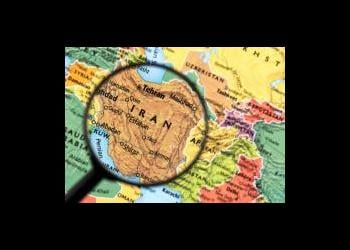Source: www.bic.org

GENEVA—12 October 2023—The recent dismissal of thousands of educators and students from Iranian universities and schools, just for expressing their support for equality and justice in Iran, recalls the purge of Baha’i professors, schoolteachers and university students which began soon after the 1979 Islamic Revolution. The denial of higher education to Iranian Baha’is continues unbroken today—and now it is the grim fate of Iranians from all backgrounds to suffer the same injustice.
After the Revolution, expelling and barring Baha’is from higher education was later formalized into government policy in a series of policy documents, notably the 1991 “Baha’i Question” memorandum, signed by Supreme Leader Ayatollah Ali Khamenei before it was obtained and published by a UN Special Rapporteur. The memorandum called for the progress and development of the Baha’i community to be “blocked” and for Baha’is to be denied educational opportunities.
“Over the past several months, the Iranian government has moved to dismiss thousands of professors, teachers and university students from the country’s schools and universities for supporting the equality of women and men, and for seeking a just and fair society,” said Simin Fahandej, Representative of the Baha’i International Community (BIC) to the United Nations in Geneva. “Now these thousands of students and their dedicated and highly trained educators are being forced to share the anguish and loss that has been inflicted on the Baha’is for more than 44 years—adding to the oppression of all in Iranian society. Our story, the story of all Iranians, is without doubt a shared one,” Ms. Fahandej added, referring also to the #OurStoryIsOne campaign.
Dismissing more than 20,000 Iranian academics and teachers—as has been widely reported in the media in recent months—bars not only these individuals from their vocations, but deprives hundreds of thousands of children and university students the quality education offered by their former instructors.
“Denying young people of the right to study has become an attack not just on the Baha’i community but a violation against the entire Iranian society,” Ms. Fahandej said. “Tens of thousands of young Baha’is, from all parts of Iran, have been barred from university since the establishment of the Islamic Republic, depriving them not only of university education but employment and intellectual development, eviscerating their hopes for a fulfilling career and prosperous future, and depriving Iran of some of the most talented minds in the country. Failing to capitalize on this talent and desire to serve is a terrible loss to the country and a national shame.”
Many Baha’is who participate in Iran’s national university entrance exam have managed to score some of the highest grades in the country. Yet they are denied university entrance because of their faith. For many years, Baha’is who passed Iran’s national university entrance exams were later told that their applications were “incomplete” or “defective,” despite this being inaccurate.
Official Iranian government documents from 2006, 2007 and 2020 have also confirmed and extended the policy. And just last year, Baha’i university applicants were “rejected” for not meeting one of the “general qualifications” for university admission. Belonging only to a religion recognized by Iran’s constitution, Islam, Christianity, Judaism or Zoroastrianism, is stipulated as a general qualification for admission on the education authority’s website.
Baha’i preschool teachers, music instructors and other academics are also harassed, arrested and jailed for teaching and tutoring children and young people across the country.
The latest move in the Iranian government’s campaign to bar Baha’is from higher education emerged in recent weeks when university hopefuls from the Baha’i community were asked to sign a declaration form renouncing their beliefs in order to be allowed admission to university.
Forcing young Baha’is to choose between their studies and their faith is a blatant violation of both the right to education and the right to freedom of conscience, religion, or belief.
“By publishing this declaration form, the Iranian government has again shown its true face. Four decades of official lies and deceit—saying that Baha’is are not discriminated against for their beliefs—are also once more exposed. Imagine being asked, as a young person, to choose between your beliefs and studying at university; how could this be accepted anywhere else in the world?” said Ms. Fahandej. “Forcing young women and men to choose between their studies and their faith is an egregious violation of human rights. The international covenants Iran has signed say that every Iranian should have equal access to education and the freedom of religion or belief. But rather than respecting these rights, the Iranian authorities use two values cherished by Baha’is, truthfulness and education, in an insidious effort to distance Baha’is from their beliefs.”
The form was produced by the Iranian government’s Ministry of Science, Research and Technology and can be seen in Persian and English at the Archives of Baha’i Persecution website.
Leave a Reply